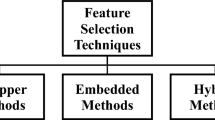Abstract.
We present a fuzzy expert system, MEDEX, for forecasting gale-force winds in the Mediterranean basin. The most successful local wind forecasting in this region is achieved by an expert human forecaster with access to numerical weather prediction products. That forecaster's knowledge is expressed as a set of ‘rules-of-thumb’. Fuzzy set methodologies have proved well suited for encoding the forecaster's knowledge, and for accommodating the uncertainty inherent in the specification of rules, as well as in subjective and objective input. MEDEX uses fuzzy set theory in two ways: as a fuzzy rule base in the expert system, and for fuzzy pattern matching to select dominant wind circulation patterns as one input to the expert system. The system was developed, tuned, and verified over a two-year period, during which the weather conditions from 539 days were individually analyzed. Evaluations of MEDEX performance for both the onset and cessation of winter and summer winds are presented, and demonstrate that MEDEX has forecasting skill competitive with the US Navy's regional forecasting center in Rota, Spain.
Similar content being viewed by others
Author information
Authors and Affiliations
Additional information
Received 5 May 1999 / Revised 8 August 2000 / Accepted in revised form 23 April 2001
Rights and permissions
About this article
Cite this article
Hadjimichael, M., Kuciauskas, A., Tag, P. et al. A Meteorological Fuzzy Expert System Incorporating Subjective User Input. Knowl Inform Sys 4, 350–369 (2002). https://doi.org/10.1007/s101150200011
Issue Date:
DOI: https://doi.org/10.1007/s101150200011




